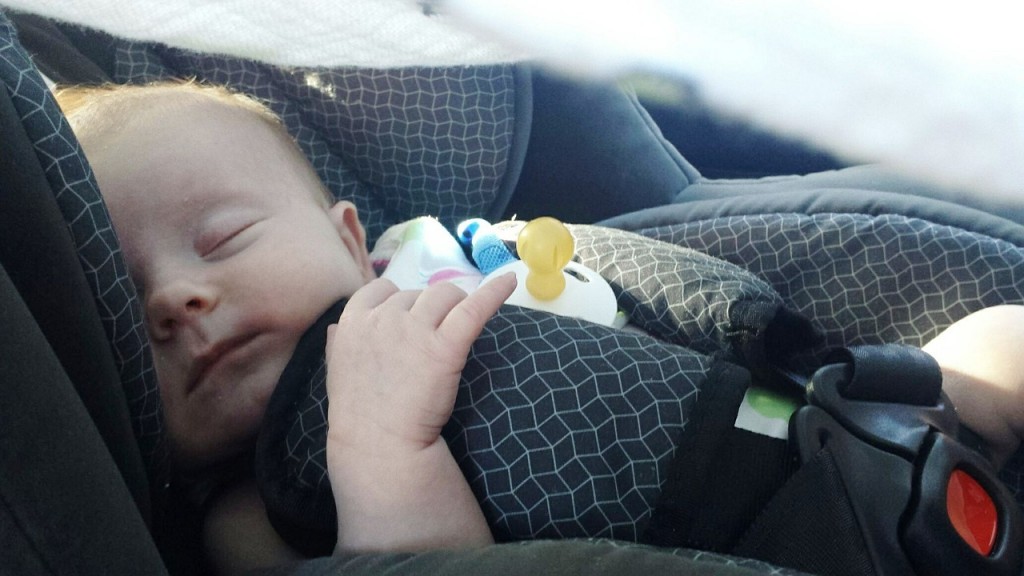Buying your first car seat can be a daunting task. With so many items to pick out for your baby, finding the perfect car seat doesn’t always make it onto the top of your priority list. Now’s the time to reconsider. Buying a car seat is not a one-and-done shopping trip. You will need to understand the types of seats available and the differences between the models, what kind of car seat your child should have at different stages, and what size car seat your vehicle can accommodate. With so much information to sort through, we decided to put together a quick guide answering some of the common questions car seat shoppers ask.
Types of Car Seats
As your child grows, there will be different types of car seats that you will use to best fit their growing height and weight. There are five main types of car seats, as outlined by Consumer Reports:
Infant Car Seat
Price Range: $80-500
This car seat is rear facing, designed to fit newborns and small babies. You can expect for this seat to work for children 4 lbs to 40 lbs, and for the seat to become inadequate when the child gets too tall. The straps of a rear-facing seat will fall at or below your baby’s shoulders (this will inhibit the strap from constraining their necks if they can’t keep their head up yet). Expect these to have a removable carrier that can connect and disconnect to a base installed within your car.
Convertible Seat
Price Range: $40-450
These seats are generally considered the next step for parents, especially if you needed to start your baby with an infant carrier because your baby was a little smaller. Because the convertible seat is designed for longevity, it has a higher rear-facing weight limit and can eventually transition to front-facing, but doesn’t include a detachable base or as snug of a fit as the infant car seat.
Booster Seat
Price Range: $30-300
Once a child outgrows their car seat, they will transition to a booster seat. Boosters are designed to raise a child’s seated position to help adjust where the seat belt falls on their body. The straps should fall over the sternum and collarbone and low across the upper thighs. Without a booster seat, seat belts usually fall across a child’s neck and abdomen, and if a crash ever occurred, it could cause catastrophic damage.
Toddler Booster
Price Range: $55-295
If the convertible booster seat is too expensive, the toddler booster is a great transitional car seat. Like the regular booster seat, the toddler booster is only forward-facing. However, this seat is a better fit for children who are not quite ready for a booster seat.
All-In-One Car Seat
Price Range:$100-330
Studies done by Consumer Reports revealed that although these seats offer longevity (usually built for infants all the way up to young children needing boosters), they don’t offer the same quality of protection. Instead of centralizing on one usage, this blanket coverage has a lot of functions that it does “okay.” But due to its size, it doesn’t fit inside of small cars very well, and for parents with newborns, the lack of a detachable base makes this option less convenient. If you’re looking for a booster seat for grandparents to have on hand for Junior every once in awhile, this seat can be a great option.
When is a Child Too Big for Their Seat?
Although weight is a factor to consider when determining the best car seat for your child, height is the most important variable. When your child’s head comes within 1 inch of the top of the seat, then you know it’s time to move up to the next size.
Where Can I Find a Good Car Seat?
Most of your favorite big-box stores carry reliable car seat brands (think of your Target and Walmart, for example). Online you can find even more great selections and options. Before you buy, however, make sure that the retailer does free returns. Little things, like your car’s cushions and seat angle, can impact how well your car seat straps in. If you do decide to shop in person versus online, ask if the store will allow you to test-install the seat in your car. Many retailers allow this option, so you can know full well that your new seat will work for your family before any money exchanges hands.
Understanding your car seat options is just one part of taking care of your child. If you haven’t yet looked into your policy, now is the time to better understand what your car and health insurance cover, should an accident ever happen. Give Doyle & Ogden a call to find out if your family has all the right protection for what’s covered and what isn’t. We’re here to help you find a policy that offers you better coverage at the best price. Call us at 616-949-9000 or request a quote online today!


